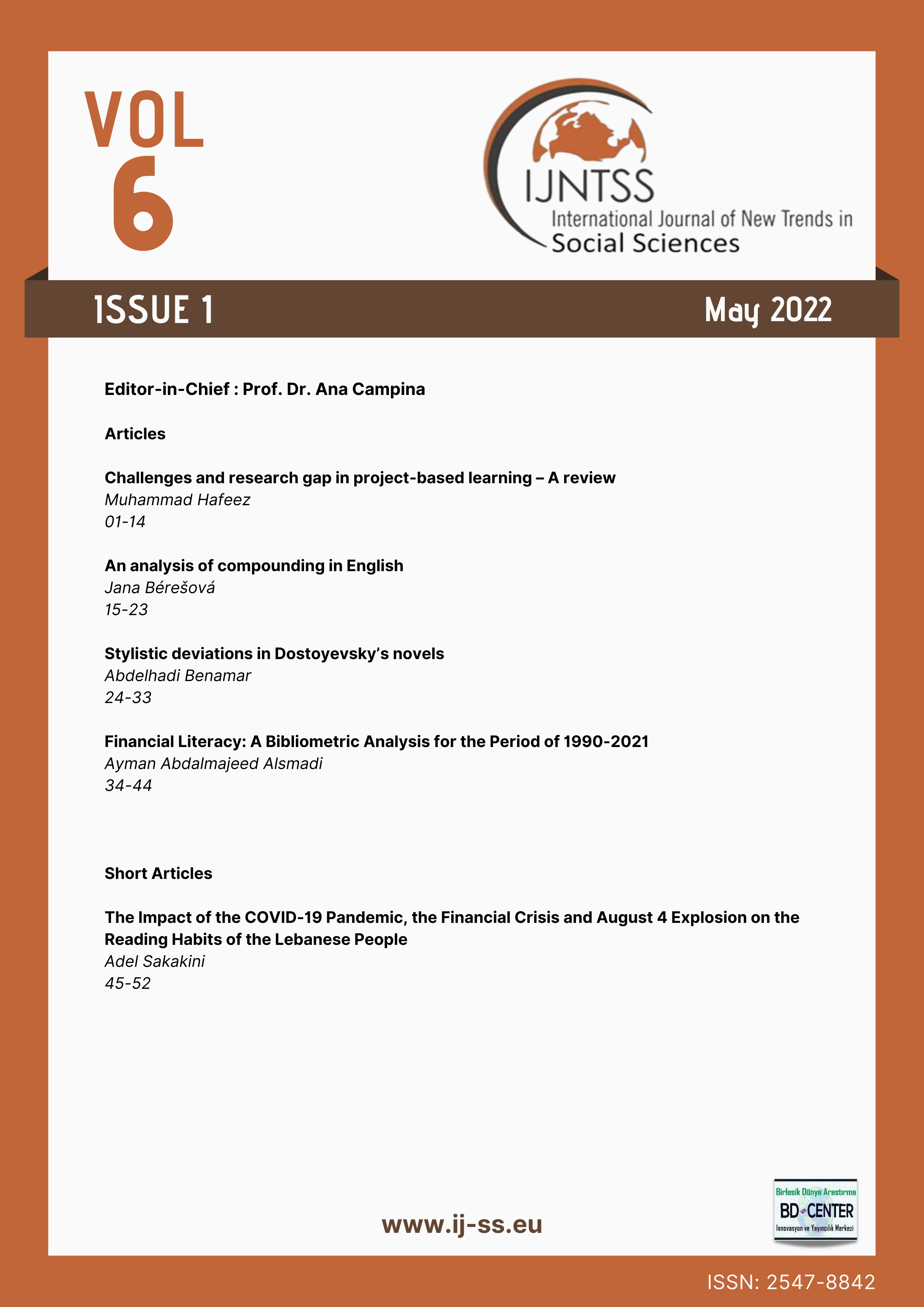Financial literacy: A bibliometric analysis for the period of 1990-2021
Main Article Content
Abstract
Financial literacy can be defined as the ability to understand and effectively use various financial skills, including personal financial management, budgeting, and investing. Financial literacy is the foundation of your relationship with money, and it is a lifelong journey of learning. This paper analyses the publications on Financial literacy, and their intellectual structure and networking. The bibliometric data on Financial literacy research have been extracted from the Scopus database. This study finds the most productive countries, universities, authors, journals, and most prolific publications in Financial literacy, by examining the published works. Also, the study visualizes the intellectual network by mapping bibliographic coupling (BC) and co-citation. The study’s essential contribution is the analysis of Financial literacy developments and trajectories that can help scholars and practitioners to appreciate the trend and future studies.
Keywords: Financial literacy; systematic review; future research; bibliometric analysis.
Downloads
Article Details

This work is licensed under a Creative Commons Attribution 4.0 International License.
Authors who publish with this journal agree to the following terms:
- Authors retain copyright and grant the journal right of first publication with the work simultaneously licensed under a Creative Commons Attribution License that allows others to share the work with an acknowledgement of the work's authorship and initial publication in this journal.
- Authors are able to enter into separate, additional contractual arrangements for the non-exclusive distribution of the journal's published version of the work (e.g., post it to an institutional repository or publish it in a book), with an acknowledgement of its initial publication in this journal.
- Authors are permitted and encouraged to post their work online (e.g., in institutional repositories or on their website) prior to and during the submission process, as it can lead to productive exchanges, as well as earlier and greater citation of published work (See The Effect of Open Access).
